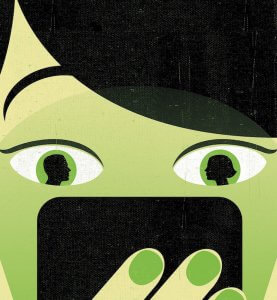Love the One You’re With?
Professor’s new app helps you evaluate the health of your romantic relationships
 Gary Lewandowski Jr. knows relationships—or to put it more accurately, he knows the science behind romantic relationships, and the factors that contribute to their success or failure. The professor and chair of the psychology department has written more than 50 academic articles and book chapters, and has given more than 100 conference presentations on those subjects. Now he’s co-developed StayGo, the first app that puts that research to work to help users scientifically evaluate their romantic relationships.
Gary Lewandowski Jr. knows relationships—or to put it more accurately, he knows the science behind romantic relationships, and the factors that contribute to their success or failure. The professor and chair of the psychology department has written more than 50 academic articles and book chapters, and has given more than 100 conference presentations on those subjects. Now he’s co-developed StayGo, the first app that puts that research to work to help users scientifically evaluate their romantic relationships.
After downloading the free app, users answer a series of questions that are “tethered to a scientific construct and host of research,” says Lewandowski. Some might seem obvious (“How much passion is in your relationship?” for example), while others look for information scientists know to be important for a successful relationship but people might not think about (“How do you react when your partner presents you with good news?”). The app’s proprietary algorithms tailor the results to the user. “If you’re a 23-year-old female who is heavy into online dating, our scoring system works very differently for you than for a 45-year-old male trying to evaluate his 20-year marriage,” says Lewandowski.
Scores are normed on 100, but most users will find they initially score in the 70s. That’s because most people’s relationships are average, says Lewandowski—a fact that can be disconcerting for some. “We don’t think about our relationship as being average, but that’s great, because it’s good to have positive illusions about our relationships,” he says. For those looking to make the illusion reality, the app provides science-based feedback on how to improve in low-scoring areas.
StayGo also features a daily tracker that allows users to see how their relationship is trending over time. “We call it the Fit Bit for relationships,” says Lewandowski. There’s also a feature that allows friends and family to anonymously share their perspective on your relationships.
Lewandowski created the app with colleagues from ScienceOfRelationships.com, a website he and other researchers cofounded “to get science into the hands of people who can use it,” he says. “We know that as much as we publish our work in journals, most people don’t read them. So as much as science discovers info that’s good for people, if we put it in a place that it never gets used, people can’t benefit from it,” says Lewandowski. The website bridges that gap, making the research accessible and engaging; the app takes it one step further.
“Everybody deserves a great relationship, but people don’t spend enough time thinking about them,” says Lewandowski. “If all this app does is get people to do that, that’s a pretty big accomplishment.”